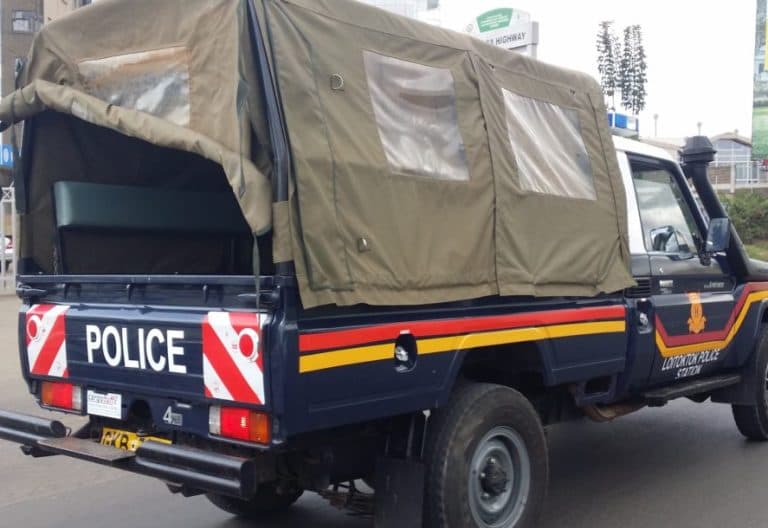We're loading the full news article for you. This includes the article content, images, author information, and related articles.
The recovery of ten stolen camels offers a brief respite to a Turkana community besieged by persistent banditry, highlighting the severe economic and social impact of livestock theft in Kenya's North Rift region.

LODWAR, Turkana County – National Police Service officers in Turkana County have successfully recovered ten camels stolen by armed bandits, according to a brief report from People Daily on Friday, November 8, 2025 (EAT). While the recovery provides a measure of relief to the affected owners, the incident is a stark reminder of the deep-rooted insecurity and the devastating economic impact of livestock rustling that continues to plague the region.
This recovery occurs against a backdrop of escalating violence and organized crime that has transformed traditional livestock raiding into a commercialized and deadly enterprise. Recent studies indicate the profound socio-economic consequences for pastoralist communities, with one report finding that 78% of households in the region have suffered from livestock theft, leading to widespread food insecurity (affecting 85% of families), displacement (30%), and interrupted education for children (40%). The causes are multifaceted, driven by economic motives (70%), scarcity of resources like water and pasture (55%), and inadequate law enforcement (50%).
The Kenyan government has launched several security initiatives to quell the violence, most notably 'Operation Maliza Uhalifu'. This multi-agency operation, involving the National Police Service and the Kenya Defence Forces (KDF), was initiated in February 2023 by President William Ruto to disarm bandits and restore order in the North Rift. While officials, including Interior Cabinet Secretary Kithure Kindiki, report that the operation has weakened bandit networks and led to some criminals surrendering their weapons, residents on the ground tell a different story.
In recent months, Turkana leaders and residents have voiced growing alarm over persistent and deadly attacks, particularly in the newly created Aroo Sub-County. In October 2025, families were reported to be fleeing their homes in villages like Kapelbok, Nakwamoru, and Kainuk due to increased raids. Turkana South MP John Ariko has accused security forces of a sluggish response and, at times, misdirected efforts that target National Police Reservists (NPRs) instead of the actual bandits. This sentiment was echoed by Turkana Governor Jeremiah Lomorukai, who condemned the rising attacks despite the heavy security presence. The violence has been tragically punctuated by the killing of a police constable guarding KCSE examinations on Monday, November 3, 2025, and two police reservists in mid-October 2025.
For the pastoralist communities of Turkana, livestock, particularly camels, are not just animals; they are the primary source of wealth, sustenance, and cultural identity. The theft of even a small number of animals can cripple a family's livelihood. The economic cost of cattle rustling in Kenya is staggering, with one report estimating losses of Ksh 2.02 billion per year in high-risk counties, and displacement costs reaching over Ksh 90 billion between 2014 and 2016. The violence disrupts every facet of life, leading to the closure of schools, markets, and essential services, and fostering a climate of fear that paralyzes development.
Addressing this complex crisis requires a multi-pronged approach. Alongside security operations, various stakeholders are pursuing peace initiatives and long-term solutions. Organizations like the Danish Refugee Council have launched cross-border peace and climate resilience programs to tackle the root causes of conflict, such as resource scarcity. Community-led initiatives, involving elders, women, and youth, are also underway to foster dialogue and reconciliation between warring communities like the Turkana and Pokot. Furthermore, the government is exploring technological solutions, including a GIS-based livestock tracking system, to improve the traceability of stolen animals and aid in their recovery. However, the effectiveness of these interventions hinges on sustained political will, effective security enforcement, and genuine community engagement to break the devastating cycle of violence in the North Rift.
Keep the conversation in one place—threads here stay linked to the story and in the forums.
Sign in to start a discussion
Start a conversation about this story and keep it linked here.
Other hot threads
E-sports and Gaming Community in Kenya
Active 9 months ago
The Role of Technology in Modern Agriculture (AgriTech)
Active 9 months ago
Popular Recreational Activities Across Counties
Active 9 months ago
Investing in Youth Sports Development Programs
Active 9 months ago
Key figures and persons of interest featured in this article